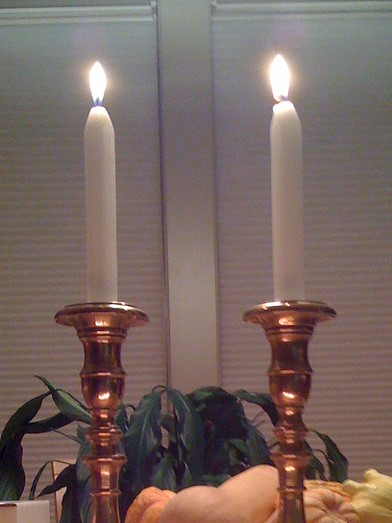
 In what is being called a “landmark decision”, the High Court of Justice yesterday rejected an appeal and upheld a Tel Aviv municipal bylaw that allows certain grocery stores to be open on Shabbat. Predictably, politicians and news outlets on both sides of the religious/secular divide reacted with the usual hype, immediately recycling old, tired clichés and baseless exaggerations as if reading from an oft-repeated script. Haredi politicians blasted the decision as an unprecedented attack on the sanctity of the Shabbat which, they claim, enforces the views of a small secular elite in defiance the clear wishes of a solid majority of the population. Meanwhile, secular politicians hailed it as a historic victory of freedom, democracy, sanity and enlightenment over the forces of darkness and intolerance represented by the religious establishment.
In what is being called a “landmark decision”, the High Court of Justice yesterday rejected an appeal and upheld a Tel Aviv municipal bylaw that allows certain grocery stores to be open on Shabbat. Predictably, politicians and news outlets on both sides of the religious/secular divide reacted with the usual hype, immediately recycling old, tired clichés and baseless exaggerations as if reading from an oft-repeated script. Haredi politicians blasted the decision as an unprecedented attack on the sanctity of the Shabbat which, they claim, enforces the views of a small secular elite in defiance the clear wishes of a solid majority of the population. Meanwhile, secular politicians hailed it as a historic victory of freedom, democracy, sanity and enlightenment over the forces of darkness and intolerance represented by the religious establishment.
Sorry, but this is all fake news. In truth, the decision was not a “landmark” – both because it related only to a very narrow legal issue (the division of authority between the national government and local municipalities) and because it may soon be overturned anyway, due to new legislation that haredi politicians have vowed to begin advancing as early as this Sunday. And for now, nothing is changing in Tel Aviv either – these stores have been open on Shabbat for years.
But actually, there is something fascinating and significant about the debate and struggle behind the ruling. Although the media and politicians are presenting this as a struggle between religious and secular Jews, it isn’t. The failed petition against the Tel Aviv law was actually filed by a group of small business owners, most or all of whom aren’t observant. They want the day off on Shabbat to spend with their families, but say that competition from the chain stores forces them to remain open, robbing them of their right to a day of rest. Their argument is that the groceries open on Shabbat are owned by big business tycoons who enrich themselves at the expense of their poor minimum-wage employees and small-business competitors who are forced to work on Shabbat.
In other words, in total contrast to the screaming headlines, the fight in Tel Aviv has almost nothing to do with religious coercion. Rather, it is a struggle for social justice by weaker members of society against oppression by the wealthy class. I find it sad that politicians from left-wing parties who were elected to support causes exactly like this found it more expedient to abandon those principles to earn a few cheap points by joining another easy attack on religion.
In truth, those of us committed to halachic observance have a lot to learn from the heroic struggle being waged by those small business owners in Tel Aviv. If you ask most observant Jews what Shabbat is about, they will probably tell you that we refrain from work on the Shabbat to remember God’s creation of the world – just as He worked for six days and rested on the seventh, we are to do the same. That answer is, of course, correct, as it is based on the Torah’s succinct presentation of the Fourth Commandment in Exodus 20:8-11.
But there is also another, less well-known version of that commandment, in Deuteronomy 5:12-15. Fascinatingly, there the Torah gives a completely different reason for observing Shabbat: “…in order that your slave and your maidservant may rest, just as you do.” To be sure, Shabbat is about God, religion and holiness. But it is also about equality, social justice and workers’ rights. Indeed, Shabbat teaches that those two objectives must go hand-in-hand, as they are inextricably linked to one another.
In an irony that most commentators seem to have missed, the controversial High Court decision was announced on a Thursday, shortly before tens of thousands of normally non-observant Jews around the world prepare to participate in the 5th annual global Shabbat, organized by South African Chief Rabbi Warren Goldstein’s amazing Shabbat Project. In announcing the decision, outgoing Supreme Court President Miriam Naor protested that the ruling “does not detract from the status and importance of the Sabbath as a national asset of the Jewish people”. Whether or not one agrees with that assessment, and while the politicians and courts prepare for the next battle in Israel’s ongoing struggle over the religious “status quo”, maybe the rest of us can use this weekend to focus on the deep, powerful and profound messages conveyed by the unique gift called Shabbat.
Shabbat Shalom to all!

Sign up for my newsletter for periodic articles along with updates on new talks, classes and videos, and upcoming speaking engagements and public tours